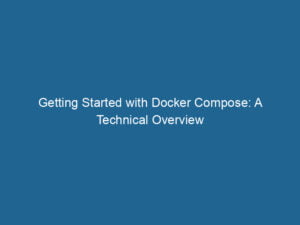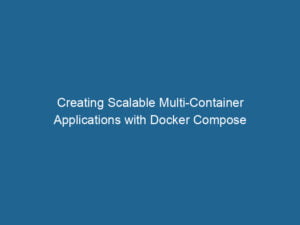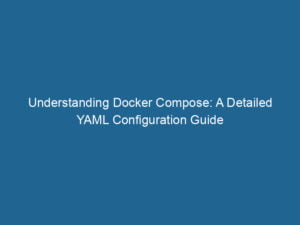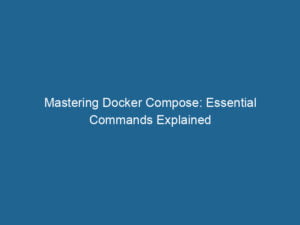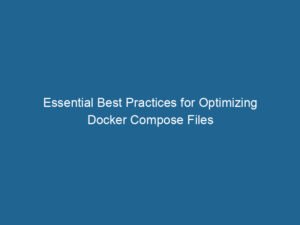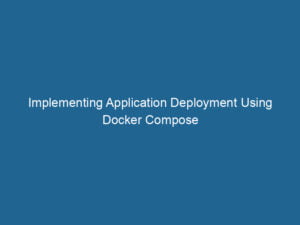Docker ComposeDocker Compose is a tool for defining and running multi-container Docker applications using a YAML file. It simplifies deployment, configuration, and orchestration of services, enhancing development efficiency…. More is a powerful tool that simplifies the management of multi-container Docker applications. It allows developers to define and run“RUN” refers to a command in various programming languages and operating systems to execute a specified program or script. It initiates processes, providing a controlled environment for task execution…. applications composed of multiple containers using a single YAMLYAML (YAML Ain’t Markup Language) is a human-readable data serialization format commonly used for configuration files. It emphasizes simplicity and clarity, making it suitable for both developers and non-developers…. file. This approach streamlines the development and deployment processes by providing a clear and concise way to describe and manage all the services that make up an application.
The core component of Docker Compose is the docker-compose.yml file, which specifies the configuration of the application’s services, networks, and volumes. This file includes details such as the Docker images to be used, environment variables, portA PORT is a communication endpoint in a computer network, defined by a numerical identifier. It facilitates the routing of data to specific applications, enhancing system functionality and security…. mappings, and dependencies between services. By using a single configuration file, Docker Compose ensures that the entire application can be easily replicated and deployed in any environment.
One of the primary advantages of Docker Compose is its ability to simplify the development workflow. Developers can use the docker-compose up command to start all services defined in the docker-compose.yml file with a single command. This eliminates the need to manually start each containerContainers are lightweight, portable units that encapsulate software and its dependencies, enabling consistent execution across different environments. They leverage OS-level virtualization for efficiency…. and ensures that all services are properly configured and connected. The docker-compose down command can be used to stop and remove all running containers, networks, and volumes, making it easy to clean up the environment.
Docker Compose also enhances the testing process by enabling the creation of isolated and reproducible test environments. Developers can define different Compose files for different stages of the pipeline, such as development, testing, and production. This approach ensures consistency across all stages and reduces the risk of configuration discrepancies. Additionally, Docker Compose supports the use of environment-specific variables, allowing for the customization of configurations based on the target environment.
In production environments, Docker Compose can be used in conjunction with orchestrationOrchestration refers to the automated management and coordination of complex systems and services. It optimizes processes by integrating various components, ensuring efficient operation and resource utilization…. tools like Docker SwarmDocker Swarm is a container orchestration tool that enables the management of a cluster of Docker engines. It simplifies scaling and deployment, ensuring high availability and load balancing across services…. or KubernetesKubernetes is an open-source container orchestration platform that automates the deployment, scaling, and management of containerized applications, enhancing resource efficiency and resilience…. to manage complex applications. Compose files can be used to define the desired state of the application, which can then be deployed and managed by the orchestrator. This integration provides a seamless transition from development to production, ensuring that applications are deployed consistently and reliably.
In summary, Docker Compose is an essential tool for managing multi-container applications. By providing a simple and unified way to define and manage services, Docker Compose streamlines the development, testing, and deployment processes, enabling teams to deliver high-quality applications more efficiently.
